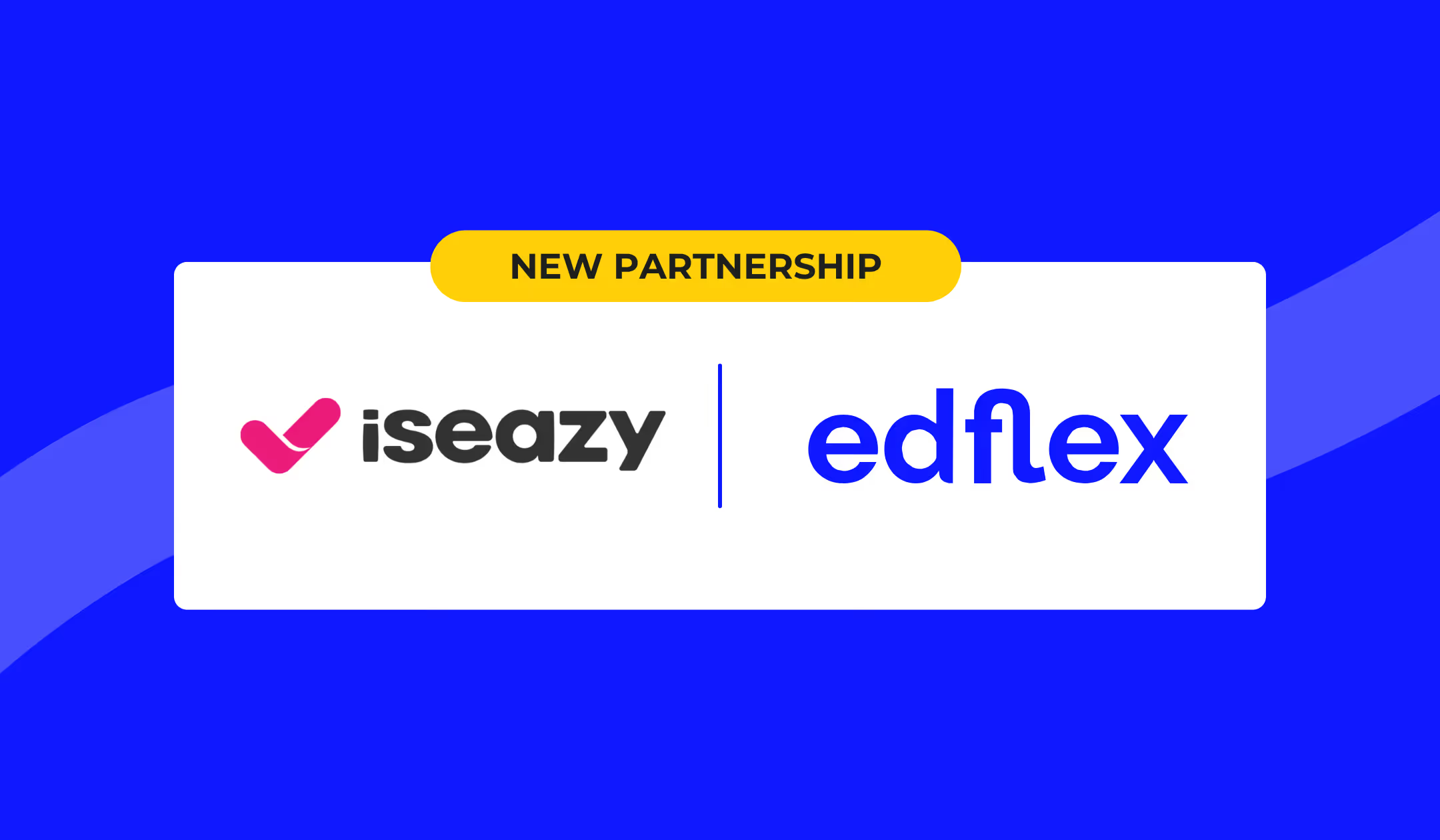AI-driven simulations are taking professional learning to the next level. From adaptive training exercises to fully personalized immersive scenarios, roleplay powered by AI is changing the way skills are developed and confidence is built.
In this blog, we will cover:
- Personalized, interactive learning: AI delivers experiences tailored to each learner, keeping engagement high and knowledge retention strong.
- Real-time coaching with Edflex Copilot: Our AI assistant guides learners through immersive roleplays, boosting both skills and confidence.
- Unique, tailored scenarios: AI-generated roleplay experiences ensure every learner’s journey is engaging, relevant, and impactful.
AI Roleplays: The New Immersive Format to Engage Learners
What is a roleplay?
Roleplay is an educational activity where participants assume fictional characters within a predefined universe, interacting according to specific scenarios. This method simulates real or imagined experiences, fostering immersion, creativity, and the development of vital social and communication skills. In the context of professional training, roleplay provides a safe, interactive environment for learners to practice and refine skills before applying them in real-world situations. Roleplay is often used to teach the basics of professional communication and management in a safe environment.
For example, employees can engage in roleplays to practice management skills such as conflict resolution or delivering difficult feedback. Customer service staff can simulate interactions where they must respond effectively to client requests. AI roleplay in sales training allows representatives to practice handling customer objections and negotiating deals without risking real-world consequences. These scenarios enable learners to experience a range of professional challenges in a controlled setting, improving their readiness and performance.

How is it different from a chatbot?
While chatbots like ChatGPT-5 simulate conversations to provide information or assistance, AI roleplay focuses on immersive storytelling and character interaction. The key difference lies in their approach to learning: chatbots primarily facilitate information exchange, offering functional responses to queries, whereas AI roleplays involve participants embodying characters within narrative-driven scenarios, emphasizing creativity and experiential learning.
This distinction also extends to the form of interaction. Chatbots typically use a structured, question-and-answer form, while AI roleplay adopts a narrative-driven form that prioritizes engagement and simulation, helping learners develop skills through realistic practice rather than simple information retrieval.
Technical Foundations of AI Roleplay
Who hasn't heard about the enormous potential of AI roleplay without really understanding what lies behind it? The power of these tools lies in their robust technical foundations, which rely on the latest advances in computer science and artificial intelligence. At the heart of these immersive experiences are machine learning and deep learning algorithms. These little geniuses enable AI tools to simulate realistic scenarios and adapt to each learner's needs. Natural Language Processing (NLP) then boosts these simulations by allowing AI to understand and generate human language, making interactions truly authentic and engaging. Spoiler: this is where the magic happens!
So, how do you move from theory to practice? To effectively implement AI roleplay, you need solid programming skills like Python and familiarity with machine learning libraries such as TensorFlow- a real asset for your projects! These technical skills allow professionals to design, customize, and optimize AI-driven scenarios that support goal setting, problem-solving, and the development of new skills. By mastering these fundamentals, individuals and organizations can unlock the full potential of AI roleplay, using these tools to drive business innovation, improve training outcomes, and promote continuous learning in both professional and everyday life.
Ready to give your teams a competitive edge?
Natural Language Processing in AI Roleplay
Have you ever wondered how AI coaches understand exactly what you mean and respond so naturally? That's the art of NLP, the fascinating branch of artificial intelligence that is completely transforming the AI roleplay experience! Thanks to NLP, your AI coaches don't just spit out canned responses, but they interpret, analyze, and generate language so fluently that you almost forget you're talking to a machine. The result? Conversations that feel truly human and interactions that flow effortlessly.
Where it gets really magical is in the context of AI roleplay! NLP enables your AI coaches to decipher every nuance of your input, provide ultra-personalized feedback, and tailor each conversation to your specific needs. You develop communication skills while gaining confidence, all within a supportive environment where you can practice real-life scenarios. Thanks to NLP, training becomes a dynamic, interactive process where language transforms into a powerful tool for personal and professional growth. And guess what? As AI coaches continue to evolve, NLP will remain at the core of this revolution, ensuring every interaction is customized, engaging, and highly effective.
Key Benefits of AI Roleplay
Artificial intelligence has become an indispensable educational assistant, creating a personalized and interactive learning environment. AI tools adapt to users’ needs, transforming training by delivering realistic simulations and tailored interactions that dynamically engage employees. In addition, AI tools can help learners manage and complete relevant tasks as part of their training. This approach helps learners better understand and apply new knowledge, making training more effective.
Imagine having a personal coach available at any time to guide you through complex professional scenarios. AI-driven roleplays provide this experience by adjusting content in real time to suit individual learning styles and goals. This personalization increases motivation and engagement, turning training into an immersive adventure where every interaction contributes to skill development. AI coaching also provides year-round development opportunities for employees, promoting continuous growth and ensuring they stay ahead in their professional journeys.
For organizations, integrating AI roleplay into training programs not only enhances learner engagement but also improves overall training outcomes. By combining artificial intelligence with deep learning and natural language processing, these tools create interactive simulations that feel natural and responsive, bridging the gap between theoretical knowledge and practical application. AI can also facilitate talent development on a larger scale by making coaching accessible to all employees, ensuring equitable opportunities for growth and skill enhancement.
Why Use AI Assistants for Training?
Scaling personalization with conversational agents
Conversational agents, AI-powered assistants capable of natural language understanding, work alongside human trainers to enhance pedagogical support. Rather than replacing human coaches, these agents provide continuous, personalized assistance that meets individual learner needs while easing the workload on trainers.
Organizations that have adopted intelligent conversational agents in onboarding and training report significant benefits, including:
- Up to a 25% increase in training completion rates, highlighting the importance of completing training programs for effective skill development.
- Intuitive interfaces that make training accessible to diverse teams.
- Seamless integration with business tools such as Microsoft Teams, Outlook, and Learning Management Systems (LMS), enabling employees to learn within their daily workflows.
Promoting skill retention with interactive simulations
Simulations represent a major breakthrough in interactive training. By allowing learners to practice skills in realistic, risk-free environments, simulations promote active learning and reinforce knowledge retention. Employees can experiment with various scenarios, from handling customer complaints to managing team conflicts, gaining confidence and expertise without real-world consequences.
This practical approach to skill development ensures that learning is not just theoretical but directly applicable, leading to better performance and productivity. Interactive simulations can also be supplemented with instructional videos to reinforce key concepts and skills.

Creating Personalized Scenarios with AI
AI-driven scenario creation offers exciting possibilities for enhancing roleplay experiences. Using advanced AI tools, trainers and content creators can develop unique narratives tailored to specific organizational contexts and professional expertise. This personalization includes customizing characters, settings, and challenges to reflect real-world situations relevant to employees’ roles.
AI scenario generators simplify the process of writing and adapting stories across multiple formats, providing unprecedented flexibility and creativity. By integrating generative AI and machine learning models, these tools can generate and adapt code to create dynamic and personalized scenarios, enabling the rapid creation of engaging scenarios that keep learners invested.
However, while AI can accelerate scenario development, personalization still requires thoughtful design and pedagogical expertise to ensure meaningful skill acquisition. A structured approach to scenario formatting and continuous refinement is essential to maximize the educational impact. Using AI as a coach can democratize access to personal coaching for everyone, not just those who can afford it, making professional development more inclusive and widespread.
From Theory to Practice: Edflex Roleplays
Edflex Copilot: Real-Time AI Coaching
Edflex Copilot exemplifies the power of AI in delivering real-time coaching through immersive roleplays. This intelligent assistant provides learners with the right resources at the right moments, helping them stay focused and maximize their learning outcomes.
With Edflex Copilot, users can practice realistic professional scenarios interactively, receiving immediate feedback that guides skill improvement. For instance, when confronted with a complex workplace challenge, learners navigate the situation with AI support, building confidence and competence.
The roleplays offered by Edflex are developed by industry experts and draw from a vast library of over 100,000 curated resources. Edflex also offers a course structure within its library, guiding learners through progressive skill development with structured modules and learning paths. This ensures that each simulation is relevant, high-quality, and aligned with professional standards.
By making training interactive and engaging, Edflex pushes the boundaries of traditional education and unlocks the full potential of learners.
Implementation and Adoption Strategies
Want to successfully integrate AI roleplay into your organization? Well, here's the thing... it's not just about jumping on the latest tech bandwagon. You need a thoughtful and strategic approach that actually makes sense.
First things first: assess what your business really needs and what goals you're trying to hit. Does AI roleplay align with your broader training objectives? If you're nodding yes, then you're on the right track. But here's where it gets interesting- providing comprehensive training and ongoing support for your employees isn't just nice to have, it's absolutely crucial. Why? Because it helps build those AI skills and expertise your team needs to fully leverage these game-changing tools.
Now, here's where you get to choose your own adventure... Organizations can embed AI roleplay within existing training programs OR deploy it as a standalone solution- it all depends on your unique requirements. But listen, setting clear goals and measurable outcomes? That's non-negotiable for tracking progress and demonstrating real value.
By adopting AI roleplay, you're offering your employees something pretty special: a personalized and interactive learning experience that supports skill development, boosts productivity, and drives actual business growth. With the right support and a focus on continuous improvement, AI roleplay can become a transformative force in employee development and organizational success. Ready to make that leap?
Feedback and Scenario Adjustment
Continuous improvement of roleplay scenarios relies heavily on user feedback. After each session, learners provide insights into their experiences, which inform adjustments to plots, characters, and interaction styles.
This iterative process ensures that scenarios remain engaging, relevant, and effective. Creators must listen carefully to users, attentively considering their feedback to refine content and better meet learner preferences and address emerging needs.
Moreover, incorporating feedback maintains learner motivation and investment, as participants see their input reflected in evolving training experiences. This dynamic approach fosters a collaborative learning environment where scenarios grow richer and more impactful over time.
Evaluating Effectiveness of AI Roleplay Training
Want to know if your AI roleplay training is really working? Spoiler: measuring impact is THE key to ensuring your learning initiatives bring real value to both your employees and your organization.
To evaluate effectiveness, you can track a range of metrics: learner engagement, knowledge retention, and development of critical AI skills. The interactive and personalized nature of AI roleplay makes it an ideal tool to assess how your teams absorb new knowledge and apply it in real scenarios. By collecting and analyzing data from your training sessions, you gain valuable insights into what works and where improvements are needed. This data-driven approach enables continuous refinement of your training programs, ensuring your employees receive the support they need to build expertise and succeed in a fast-evolving business environment!
Ultimately, effective evaluation helps your organization maximize its investment in learning and development, giving your teams the skills and confidence to excel in both their professional and personal lives. Notably, there has been a 21 times increase in job postings mentioning AI technologies, highlighting the growing demand for these skills.
In Summary
AI roleplay is opening new frontiers in learning and professional development. By combining personalized coaching, interactive simulations, and adaptive scenarios, AI-powered tools like Edflex Copilot are transforming how organizations train employees and how individuals acquire new skills.
The future of AI roleplay promises even greater innovation, offering immersive, engaging, and effective learning experiences that bridge theory and practice. As artificial intelligence continues to evolve, these technologies will play an increasingly vital role in shaping career trajectories and opportunities, enhancing productivity, and supporting lifelong learning.



















